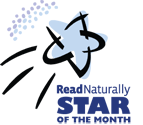Since 1967, International Children's Book Day has been celebrated on or around Hans Christian Andersen’s birthday on April 2. Here are some ways to celebrate.
Read more It's now well past February, but the remnants of Valentine's Day still linger in my couch cushions. The handmade cards are always my favorite ones to find… especially the ones wishing a "Happy Valantine's Day." I asked my first grader if he knew what makes the word Valentine so hard to spell. He guessed, "Because it's a long word," which is half right. Long words are usually multisyllabic, and multisyllabic words usually have a schwa. The schwa sound—such as the one on the first "e" in Valentine—is notorious for making words difficult to read and spell.
Read more Every year since 1987, March has been designated by presidential proclamation as Women’s History Month. This annual celebration of women’s contributions to American history began as Women’s History Week in 1978, and today countries like Canada and Australia also honor women and...
Read more I recently worked with a second grader who showed me a paragraph he wrote about helping the “oshin.” His thoughtful ideas were right on the mark. His spelling, however, was not. When this boy reads books about the ocean, complete with pictures and context clues, he can read the word without hesitation. But when I later showed him the word “ocean” on its own, he had no idea what it said. What’s going on here?
Read more February is Black History Month, a celebration of the achievements of Black Americans. It began as Negro History Week in 1926, when Carter G. Woodson, a Black historian, was instrumental in founding an organization that promoted the achievements of Black Americans. A week of celebrations, performances, and lectures grew into a monthlong opportunity to honor famous Black Americans and their contributions to American society.
Read more Are you looking for a professional development opportunity that’s practical, applicable, accessible, AND affordable?
Read Naturally is proud to partner with Keys to Literacy to offer a fantastic professional development opportunity for K to Grade 3 educators. Offered this winter and spring, the Keys to Beginning Reading course provides the knowledge needed to teach the components of beginning reading.
Read more When it comes to teaching children to read, the importance of a quality phonics program cannot be overstated. With so many options available, it can be challenging to determine which program will best suit the needs of your students.
Read more Dyslexia exists in all cultures and all languages. However, it does not impact learners in every culture in equal measure; the severity of dyslexia’s impact partially depends on the language a person is learning to read.
Read more In recognition of Dyslexia Awareness Month, Read Naturally begins a series of articles designed to build knowledge around the learning disorder of dyslexia. This first article summarizes the remarkable discovery of the language disorder over 140 years ago.
Read more Dyslexia is one of the main challenges we address here at Read Naturally. For dyslexia awareness month, we want to point you toward the myriad ways in which a Read Naturally intervention can help students with this learning difference.
Read more  Share your student’s success story—nominate him or her for our Star of the Month award. Win a Barnes & Noble gift card for the student and a Read Naturally gift certificate for your class!
Share your student’s success story—nominate him or her for our Star of the Month award. Win a Barnes & Noble gift card for the student and a Read Naturally gift certificate for your class!